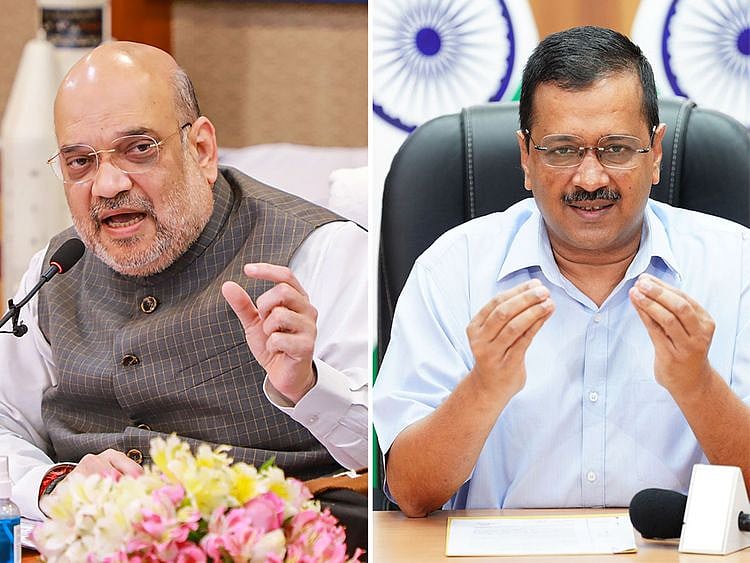Every Indian loves politics (I cover it for a living). We gossip avidly about the principal players and nod along wisely to the “dangal” (wrestling bout) that passes off as nightly “news” on our “news channels”.
On social media, shallow and vacuous analysis is made of the “body language” displayed by leaders, the endless defections, ‘will he? won’t he?’ fascinate us. The “deals” between parties, the seamy dark side of realpolitik fascinate us.
The one thing however, we the Indians don’t care about, cynical as we are, is the delivery part of electing a government that involves keeping the lavish campaign promises made to win power.
Take the case of my city, New Delhi. We have had some rain, not a deluge but, the normal monsoon showers. New Delhi is the capital of India, which leaders keep assuring us is a world beating super power. As soon as monsoons started, roads turned into giant swimming pool-sized deep craters that could easily drown a small car.
Before the monsoons, it was an endemic water crisis in south Delhi which has some of the highest circle rates in India (minimum price set by the government, at which a residential or commercial property can be sold or transferred).
New Delhi is run by two political entities — the Delhi government and the Lieutenant Governor (LG) of Delhi who reports to the ministry of home affairs. So essentially three men are responsible: Chief Minister, Arvind Kejriwal, LG Anil Baijal and Amit Shah, India’s home minister.
The promises and propaganda
If you believed the tax payer funded page one advertisements put out on all possible mediums by Kejriwal, you would believe that he has turned Delhi in to some sort of a paradise.
Sadly the reality is somewhat different. Kejriwal has one formula: blame everyone else for the sad reality of life in Delhi while sitting in his giant bungalow (election promise: no one in Aam Aadmi Party (AAP), including myself, will live in a ministerial bungalow) plotting his entry in all-India politics.
Ironically, Kejriwal had promised free water to Delhi. As Delhi did without water, he got busy campaigning on the same promise in another state. The agitprop politician who would hit the street on every chance, now does not go on public protest even when the neighbouring state of Haryana cuts water supply.
Baijal, as befits a senior official who has headed Indian Airlines in the past, going on a record world tour on freebie tickets, is busy playing golf. As he does not suffer any power or water outrage in his VIP home, he simply couldn’t care.
Delhi has defeated the Bharatiya Janata Party (BJP) twice in the assembly elections, so Shah simply couldn’t care a jot for the national capital.
The unliveable hell of Delhi is the mirror to all of India. Basic requirements like “bijli, sadak, paani” (electricity, roads and water) are still sketchy, yet we don’t hold our leaders to the promises they make.
India is taxed in someway from direct and indirect taxes — yet some politicians behave like feudal lords. They have carved out spaces in every state capital like Lutyens Delhi which has acres of manicured green lawns and gorgeous high ceiling bungalows. The electricity is 24/7 and so is the water.
An unending spectacle
I remember telling the late Arun Jaitley, a Delhi resident, before a TV interview that large parts of Delhi was suffering power cuts. He smiled and shrugged and said “I don’t know about that. We have an excellent power back up”.
Indians have become so thick skinned about political delivery that in the second vicious wave of COVID-19 when medical infrastructure collapsed, hospitals were begging on social media for oxygen and basic medicines, the central government has now gotten away with the claim that no deaths happened due to oxygen shortage.
The rate of vaccination — the only defence in the pandemic — crawls but, Indians don’t hold the government to account, and instead blame some vague karma. The fact that the central government, before the second wave, placed one single order of vaccines is brushed under the carpet.
People choose to blame fate for a needless death that happened due to negligence. Because of the voters apathy, governments which promised to turn Varanasi (in Uttar Pradesh) in to Kyoto (Japan), know that they don’t have to keep any promise. An avowal is enough to win elections.
Bread and butter issues don’t seem to matter to the average voter in India, distraction does. So a Bollywood star’s suicide is turned in to a macabre witch-hunt, covered minutely by the “news channel”. A woman editor blithely invades an actor’s privacy by reading out her messages live on national television.
It’s not enough to boast of being the world’s largest democracy. Let us not forget that democracy has to work for the last man in the line.
Network Links
GN StoreDownload our app
© Al Nisr Publishing LLC 2026. All rights reserved.
